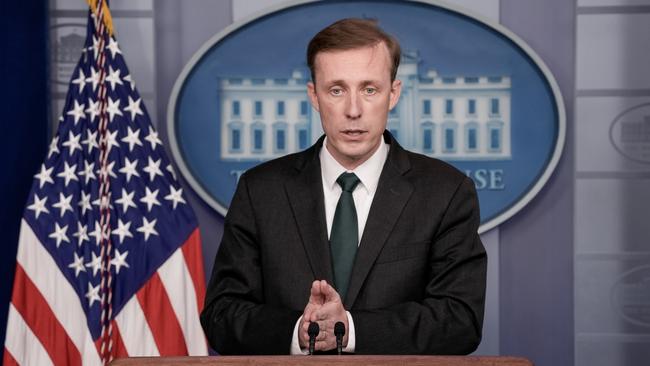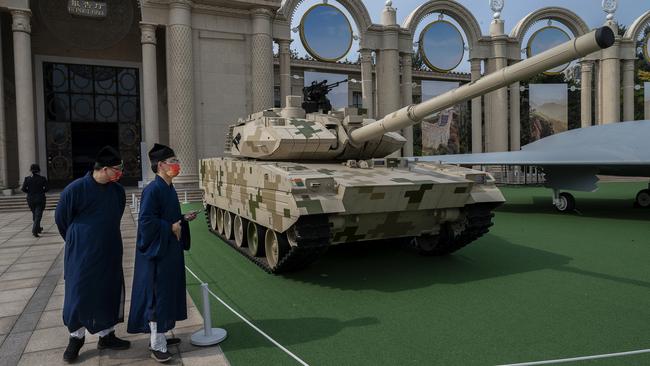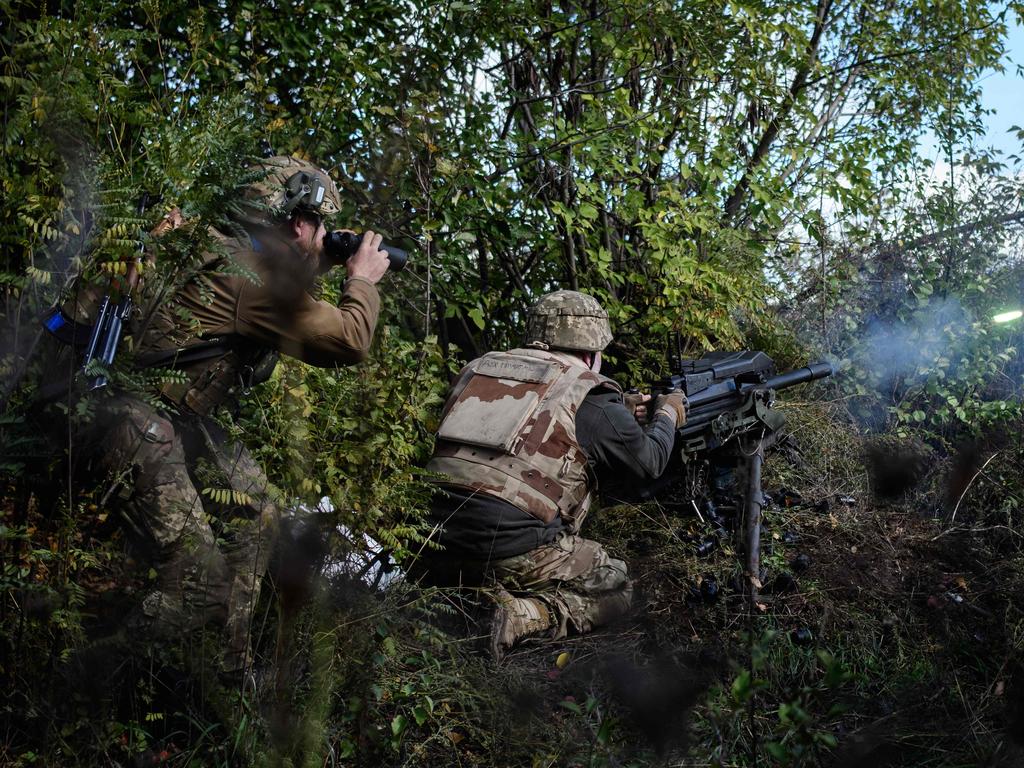US sees ‘decisive decade’ ahead in competition with China, Russia
White House releases National Security Strategy document; climate change, energy and food security also identified as issues.

The US is entering a “decisive decade” as it faces competition with China and an attempt by Russia to up-end the international order, while dealing with challenges from climate change to energy to food security, international terrorism and disease, the White House said Wednesday.
The Biden administration released its national security strategy, a blueprint that outlines the administration’s approach to problems around the world.
The strategy describes the US’s attempt to compete with its adversaries, such as China and Russia, while cultivating alliances with countries that share American interests and objectives.
“Our strategy proceeds from the premise that two strategic challenges — geopolitical competition and shared transnational threats — are intertwined,” White House National Security Adviser Jake Sullivan said at an event at Georgetown University.
“We cannot build (the) broad coalitions we need to outcompete our rivals if we sideline the issues that most directly impact the lives of billions of people,” he said.
The strategy was delayed for months, in part, Mr Sullivan said, because the analysts needed to factor in lessons from Russia’s invasion of Ukraine, now in its eighth month. The strategy, which every administration is required to draft, informs a separate document that has yet to be released from the Pentagon, called the national defence strategy, which informs budgeting and other plans for the US military.
Mr Sullivan said that the strategy was consistent with the administration’s vision on modernising the US military and intelligence capabilities, amid the deep investments Beijing has made in its own military.
In addition to pointing to the threats posed by China and Russia, the strategy de-emphasises threats posed by terrorism but identifies a number of transnational threats that include food security, disease, pandemics and climate change, Mr Sullivan said.
“The national security strategy also recognises that the climate crisis is the greatest of all the shared threats that we face without immediate global action during this decisive decade,” he said.

Previous national security strategy documents had defined both China and Russia as global competitors to the US, and Moscow’s February invasion of Ukraine was a reminder that the threat posed by Russia couldn’t be written off. Russia is “still profoundly dangerous,” the White House document said.
But the weakening of Russia’s military and of its position on the global stage since the invasion and battlefield losses to Ukrainian forces have reinforced the view that China is the US’s most consequential threat.
While Russia is diminishing in strength, the new strategy describes Beijing as the only competitor with the intent to reshape the international order and the increasing economic, diplomatic, military and technological might to do so.
The strategy largely codifies the approach toward Beijing that the Biden administration has pursued since coming into office: investing more at home to boost American economic and technological competitiveness and relying more on the US’s wide network of alliances to constrain Beijing’s room to manoeuvre.
In a third pillar of that approach, the US will compete responsibly with China to defend American interests, the document states, while seeking to co-operate with Beijing on climate change and recognising the unease many countries feel at being caught between the US and China.
“We also want to avoid a world in which competition escalates into a world of rigid blocs,” the strategy reads. “We do not seek conflict or a new Cold War. Rather, we are trying to support every country, regardless of size or strength, in exercising the freedom to make choices that serve their interests.”
Mr Biden in discussions with Chinese leader Xi Jinping has outlined the US call for co-operation and the need to put limits on competition to prevent a new Cold War. Beijing and Mr Xi have often responded coolly to these overtures, saying US actions don’t match Mr Biden’s words.
Taiwan, the US partner and democratically governed island that Beijing claims as its territory, has been a worsening source of friction. US officials believe China could invade Taiwan in the next four or five years, and has drawn important lessons from Russia’s invasion of Ukraine and the response to it by the US and allies.
The Biden administration has followed a Trump administration effort to boost support for Taiwan, and Beijing has increased military and economic pressure on the island, including staging large-scale multiday exercises this summer.
The strategy offers reassurances and warnings to China, saying that the US opposes independence for Taiwan, a red line for Beijing, but will “maintain our capacity to resist any resort to force or coercion against Taiwan.”
More concerning for Beijing is likely to be the document’s emphasis on US alliances, especially on drawing allies in Europe and the Indo-Pacific into “new and deeper means of co-operation.”
While that emphasis is likely to cause concern in Beijing, said Michael Mazarr, a defence and security specialist with the Rand Corporation, allies should also now expect the Biden administration to improve policies on military sales, technology transfers and other measures to better accommodate their interests.
In declaring the next decade decisive in the competition with China, Dr Mazarr said, the Biden administration will have to urgently develop economic and investment policies to compete for influence in the developing world as well as bolster defence capabilities.
The strategy’s offer to work with all countries and not treat them as pawns in great-power competition comes as the US is trying to recover influence among developing nations. Some developing nations have at times complained that they are being driven into Beijing’s and Moscow’s embrace by the US’s use of economic sanctions and its positions on human rights and environmental protection.
“You condemned us,” Brazilian Finance Minister Paulo Guedes said in an interview Wednesday, referring to international concern about Brazilian President Jair Bolsonaro’s record on the environment and human rights, “and then we got farther apart and farther apart, and then the Russians and the Chinese say, ‘No problem. We trade.’”
The Wall Street Journal






To join the conversation, please log in. Don't have an account? Register
Join the conversation, you are commenting as Logout